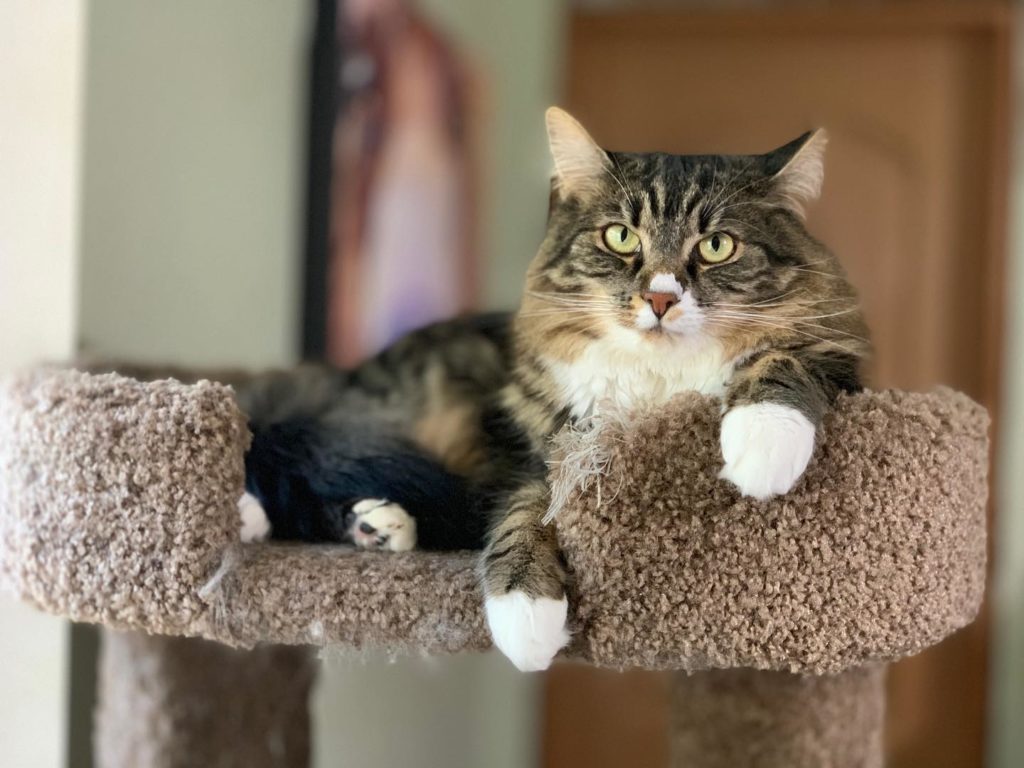VetStem Cell Therapy for Diseases in Cats
This coming Sunday, August 8th, is International Cat Day! We thought this would be the perfect opportunity to discuss the use of stem cells for various diseases in cats. Like dogs and horses, VetStem Cell Therapy can be used in cats to treat orthopedic conditions such as osteoarthritis and injured tendons and ligaments. But there are several other diseases for which VetStem Cell Therapy may be helpful.
Chronic Kidney Disease
A common disease in cats is kidney disease. Chronic Kidney Disease (CKD) is a common cause of sickness and death in cats. In fact, some reviews suggest that CKD may be the number one cause of sickness and death in older cats. Unfortunately, treatment options are limited and can be costly.
One potential treatment option is VetStem Cell Therapy. Nearly 200 cats have received VetStem Cell Therapy for CKD and veterinarians have seen some promising results. Based upon data from a small number of feline patients treated with VetStem Cell Therapy, blood kidney values were slightly to moderately improved after treatment. While more evaluation is necessary, these results suggest VetStem Cell Therapy may be a viable treatment option for cats with CKD.

Inflammatory Bowel Disease
Inflammatory Bowel Disease (IBD) is a gastrointestinal disease that can affect both cats and dogs. It is characterized by inflammation of the intestines and can cause vomiting, diarrhea, reduced appetite, and weight loss. It is important to note however, that these symptoms can be indicative of several conditions including feline lymphoma. Since VetStem Cell Therapy is contraindicated in pets with cancer, it is essential to rule this out before pursuing treatment with stem cells.
Several cats have received VetStem Cell Therapy for IBD. In fact, one of our veterinary clients, Dr. Joel Stone, wrote a guest blog about one of his feline patients who experienced relief from IBD after treatment with VetStem Cell Therapy. In one of our own case studies, a 4-year-old Himalayan cat developed IBD and treatment with VetStem Cell Therapy quickly resolved the cat’s diarrhea and vomiting and led to an increased appetite with no recurrence. To add to that, in a recently published paper, 5 out of 7 IBD cats that were treated with stem cells were significantly improved or had complete resolution of symptoms, whereas the 4 control cats had no improvement.
Gingivostomatitis
Another unfortunate disease that affects cats is gingivostomatitis. Gingivostomatitis affects the mouths of felines and causes oral pain which leads to other symptoms such as decreased appetite, reduced grooming, and weight loss. The most common treatment is extracting all the cat’s chewing teeth, however only about 70% of cats will respond to this treatment. The remaining 30% of cats that do not respond will require lifelong treatment with medications.
Fewer cats have received VetStem Cell Therapy for gingivostomatitis than CKD, however veterinarians have seen favorable results none the less. In addition to our own data, two small studies conducted at the University of California Davis showed that when fat-derived stem cell therapy was utilized in addition to teeth extractions, there was improvement or remission in the majority of cats treated. VetStem believes that fat-derived stem cell therapy without full extractions may be beneficial.
As you can see, VetStem Cell Therapy may be useful for a number of disease processes. Though the above conditions are still in the investigative stages, the preliminary results look very promising! If you think your cat may benefit from VetStem Cell Therapy, speak to your veterinarian or contact us for a list of VetStem providers near you.
